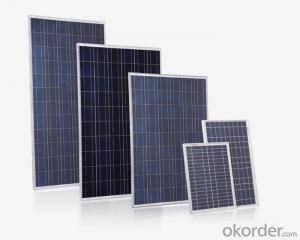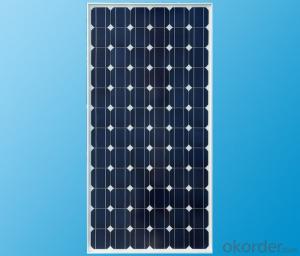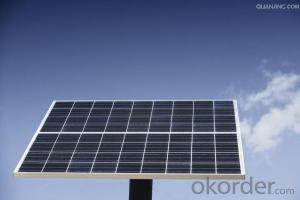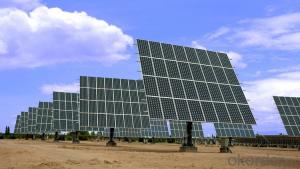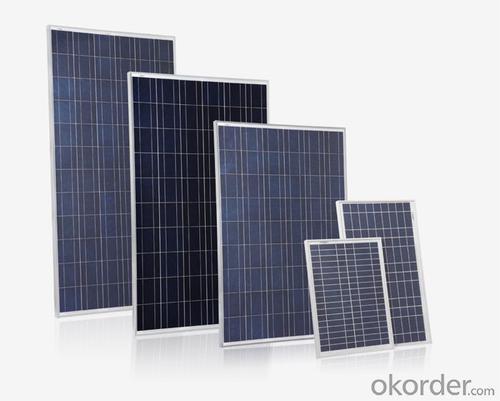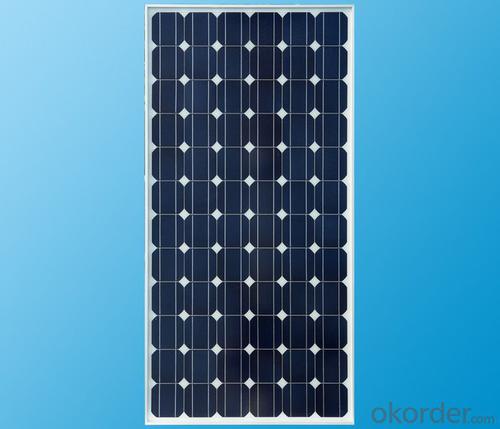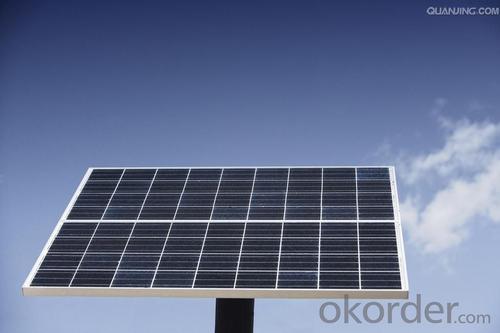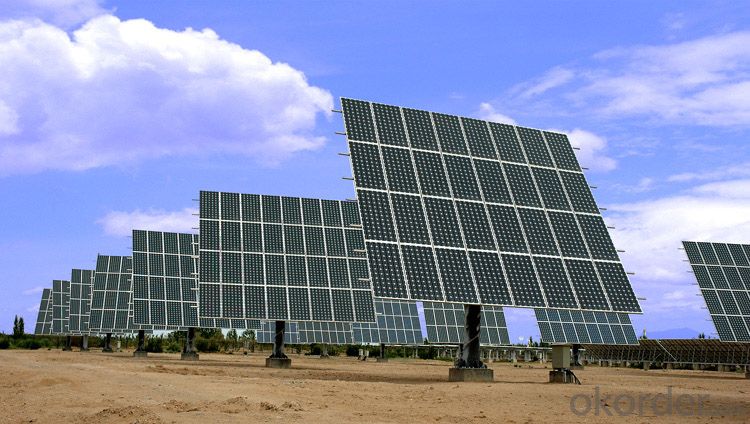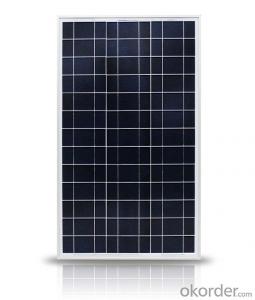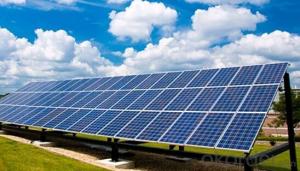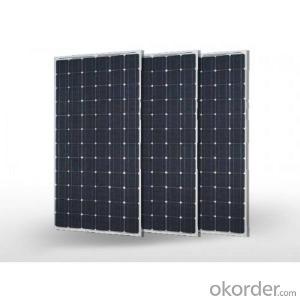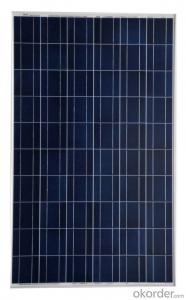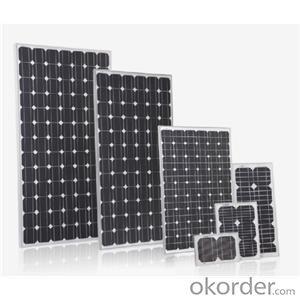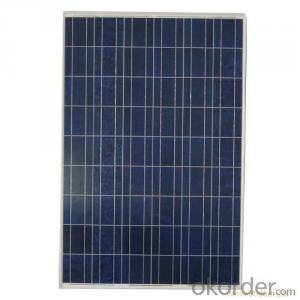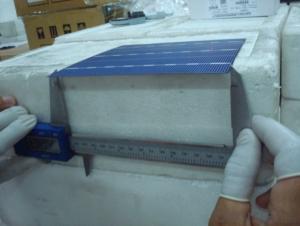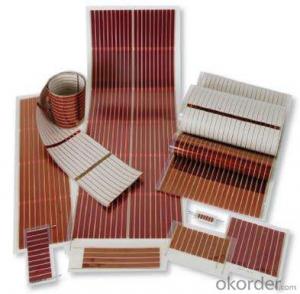Dye-Sensitized Solar Cells Favorites Compare Best Price per Watt Solar Panels 250W for Grid Tied Solar System
- Loading Port:
- China Main Port
- Payment Terms:
- TT OR LC
- Min Order Qty:
- -
- Supply Capability:
- 10000000000000 watt/month
OKorder Service Pledge
OKorder Financial Service
You Might Also Like
Quick Details
| Place of Origin: | Guangdong China (Mainland) | Brand Name: | CAP | Model Number: | 50w100w150w200w250w300w |
| Material: | Monocrystalline Silicon | Size: | 1385*1035*75mm | Number of Cells: | 72pcs |
| Max. Power: | 300w | type: | solar panel | color: | blue&black |
| warranty: | 5 years |
Packaging & Delivery
| Packaging Detail: | standard export package for solar panel |
| Delivery Detail: | 7-15 days for solar panel |
Specifications
solar panel
High Efficiency
25 years Warranty
High-transmissivity low-iron tempered glass
Solar Panel
50w100w150w200w250w300w
Characteristics
1,High and stable conversion efficienly based on over 4 years professional experience
2 ,High reliability with guaranteed +/-10% output power tolerance
3,Proven materials,tempered front glass,and a sturdy anodized aluminum frame allow modules to operate reliably in multiple mountily configurations
4,Combination of high efficicncy and attractive appearance
Quality and Safety
1,25 year 80%,10 year 90% power warranty 3 year power warranty
2,ISO9001:2000 (Quality Management system) certified factory
3,Product Quality warranty & products Liability Insurance to guarantee and user' benefits
4,Certifications TUV Intercert, CE Temperature Coefficients
| Module Type | 100w | 150w | 200w | 250w | 300w |
| Maximum Power at ST(Pmax)W | 100wp | 150wp | 200wp | 250wp | 300wp |
| Maximum Power Voltage(Vmp)V | 36/18 | 36/18 | 36/18 | 30.8v | 36/18 |
| Maximum Power Current(Imp)A | 2.77/5.55 | 4.16/8.33 | 5.55/11.1 | 8.11A | 8.33/16.66 |
| Open Circuit Voltage(Voc)V | 39.5/19.05 | 39.3/19.4 | 39.6/19.5 | 36.2V | 39.6/19.8 |
| Short Circuit Current(Isc)A | 3.04/6.09 | 4.58/9.16 | 6.1/12.2 | 8.7A | 9.16/18.33 |
| Cell Efficiency(%) | 18.60% | 18.10% | 18.60% | 17.80% | 18.10% |
| Module Efficiency(%) | 17.70% | 17.20% | 17.70% | 17.10% | 17.20% |
| Operating Temperature°C | -40°C to +85°C | -40°C to +85°C | -40°C to +85°C | -40°C to +85°C | -40°C to +85°C |
| Maximum system voltage | 1000V(IEC)DC | 1000V(IEC)DC | 1000V(IEC)DC | 1000V(IEC)DC | 1000V(IEC)DC |
| Power tolerance | -0.03 | -0.03 | -0.03 | -0.03 | -0.03 |
| Temperature coefficients of Pmax | -0.45%/°C | -0.45%/°C | -0.45%/°C | -0.45%/°C | -0.45%/°C |
| Temperature coefficients of Voc | -0.27%/°C | -0.27%/°C | -0.27%/°C | -0.27%/°C | -0.27%/°C |
| Temperature coefficients of Isc | 0.05%/°C | 0.05%/°C | 0.05%/°C | 0.05%/°C | 0.05%/°C |
| Weight(kg) | 8 | 11 | 14 | 20 | 25.5 |
| Number of cell(pcs) | 4*9 | 4*9 | 6*10 | 6*12 | 6*12 |
| Dimensions(mm) | 1194*534*35/30 | 1580*808*50/35 | 1471*670*40/35 | 1640*992*50 | 2000*1050*50 |
- Q: Can solar cells be used in transportation?
- Yes, solar cells can be used in transportation. Solar cells can be integrated into vehicles such as cars, buses, and trains to generate electricity and power various components, including lights, air conditioning, and even propulsion systems. This helps reduce reliance on fossil fuels, lowers emissions, and promotes sustainable transportation. Additionally, solar-powered vehicles can also have the ability to charge their batteries using sunlight, further extending their range and reducing the need for external charging infrastructure.
- Q: Can solar cells be used in water?
- Yes, solar cells can be used in water, but they must be specifically designed for underwater use to ensure their functionality and durability.
- Q: Can solar cells be used in areas with high humidity?
- Yes, solar cells can be used in areas with high humidity. While high humidity can potentially affect the overall efficiency of solar cells, advancements in technology and materials have made them more resistant to moisture and corrosion. Additionally, solar panels are designed to withstand various weather conditions, including high humidity, and continue to generate electricity even in such environments.
- Q: Can solar cells be used for powering military bases?
- Yes, solar cells can be effectively used for powering military bases. The deployment of solar photovoltaic (PV) systems can provide a reliable and renewable source of energy to meet the electricity demands of military bases. Solar panels can be installed on rooftops, parking structures, or open land, and can generate electricity even in remote locations. Solar power reduces reliance on fossil fuels, increases energy security, and minimizes the environmental impact of military operations. Additionally, solar energy systems can be integrated with energy storage solutions to ensure a continuous power supply, making them a viable option for powering military bases.
- Q: Can solar cells be used in water purification systems?
- Yes, solar cells can be used in water purification systems. Solar cells can generate electricity from sunlight, which can power various components of water purification systems such as pumps, filters, and disinfection processes. This enables the system to operate independently from the grid, making it suitable for remote or off-grid locations. Additionally, solar energy is a clean and sustainable power source, aligning with the environmentally-friendly nature of water purification processes.
- Q: How do solar cells handle voltage fluctuations?
- Solar cells do not handle voltage fluctuations themselves. However, to address voltage fluctuations, external devices such as voltage regulators or inverters are used in conjunction with solar cells. These devices help maintain a stable voltage output from the solar cells, ensuring consistent power supply regardless of any fluctuations in the input voltage.
- Q: How do solar cells affect the local ecosystem?
- Solar cells have a minimal impact on the local ecosystem. Unlike traditional energy sources, solar cells do not produce harmful emissions or pollution during their operation. Additionally, solar farms can be designed to coexist with the natural environment by incorporating measures like landscaping and wildlife-friendly habitats. Overall, solar cells contribute positively to the local ecosystem by promoting clean energy and reducing carbon emissions.
- Q: Can solar cells be used in powering RVs and campers?
- Yes, solar cells can be used to power RVs and campers. Solar panels can be installed on the roof of the vehicle to capture sunlight and convert it into electrical energy, which can then be used to power various appliances and systems in the RV or camper. This provides a clean and sustainable source of power, especially when camping in remote areas where access to electricity may be limited.
- Q: Can solar cells be used on rooftops with different orientations?
- Yes, solar cells can be used on rooftops with different orientations. While the ideal orientation for maximum solar energy production is typically facing south, solar panels can still generate electricity when installed on rooftops facing east, west, or even north. The efficiency and energy output may be slightly lower, but advancements in solar technology and the ability to tilt and adjust panel angles can help optimize energy production on rooftops with varying orientations.
- Q: Can solar cells be used in parking lots?
- Yes, solar cells can be used in parking lots. Solar panels can be installed on the roofs of parking structures or on canopies to capture sunlight and convert it into electricity. This renewable energy source can power lighting systems, charging stations for electric vehicles, and other electrical equipment in parking lots, making them more sustainable and reducing reliance on the grid.
Send your message to us
Dye-Sensitized Solar Cells Favorites Compare Best Price per Watt Solar Panels 250W for Grid Tied Solar System
- Loading Port:
- China Main Port
- Payment Terms:
- TT OR LC
- Min Order Qty:
- -
- Supply Capability:
- 10000000000000 watt/month
OKorder Service Pledge
OKorder Financial Service
Similar products
Hot products
Hot Searches
Related keywords
